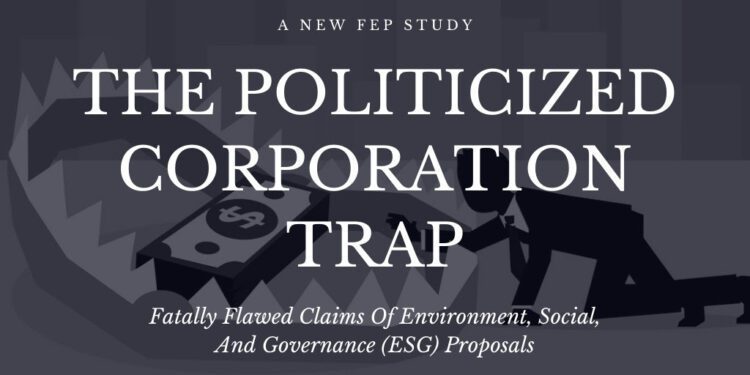The first in a series analyzing claims by proponents of Environment, Social, and Governance (ESG) and stakeholder primacy policies about the feasibility and value of their proposals.
ESG proponents assert that their almost uniformly leftwing proposals are in the financial best interests of shareholders, as required by American corporate law. But the “evidence” for these assertions adds up to nothing more than biased advocacy – essentially, propaganda – that meets none of the requirements of objective and thoughtful research.
Corporate directors and officers would therefore violate their fiduciary duty by relying on this “evidence” in any meaningful way. And the stakeholder-primacy model of corporate governance that they embrace, in hopes of legally facilitating the move toward actively leftwing corporate involvement, is not law and cannot coherently be made into law without undermining every vital factor of corporate law and the American economic system.
This is the first in a series of policy papers that will demonstrate the fatal flaws of these proponents’ analyses and strategies. In this installment we will provide an overview of the problem and the potential consequences of relying on ESG-proponent analysis. In later pieces, we will review specific proponent reports and fields of advocacy, and will indicate the course of additional research and analysis that corporate leaders will need to undertake when considering ESG initiatives so as to fulfill their fiduciary duties.
We will further explore the inherent instability of ESG as a category, and the fundamental incoherence of the underlying stakeholder-primacy model of corporate governance. Throughout, we will show that ESG policies and stakeholder primacy are so fundamentally flawed that corporations would run great risks and incur substantial liability, for no ultimate net reward whatever, by adopting them.
The full Report:


